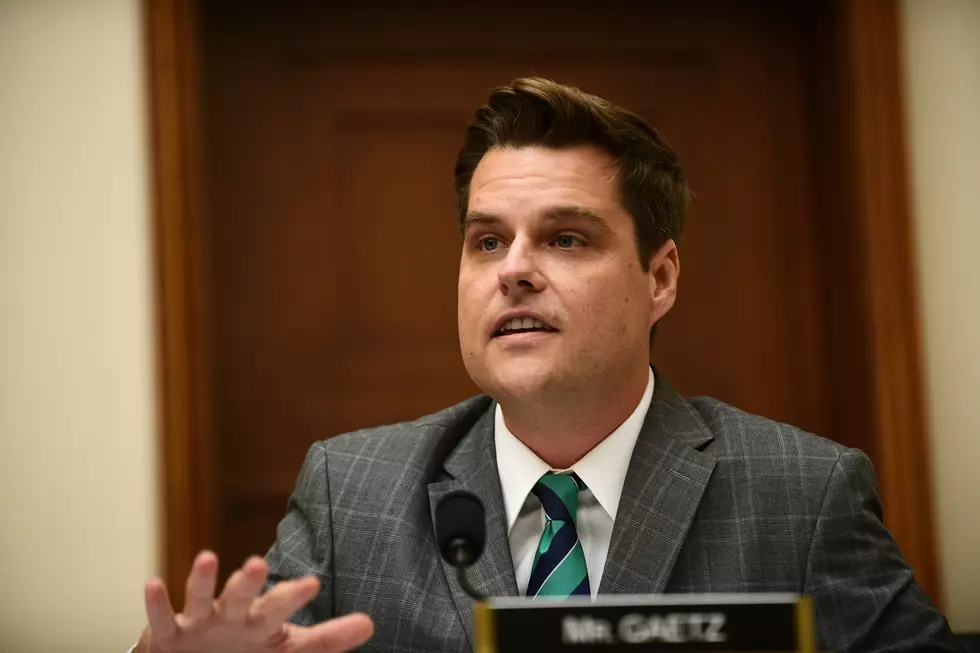
Officials Respond to Sex Trafficking Report
CHEYENNE, Wyo. (AP) — Federal and state prosecutors in Wyoming say the laws already on the books are sufficient to deal with offenders who might engage in sex trafficking of children despite a recent national report giving the state a failing grade on the issue.
Nonetheless, some Wyoming officials say the state should consider adopting a new law specifically outlawing child sex trafficking if only to send the public message that the state is serious about the issue.
Shared Hope International, an advocacy group, issued a stinging report in early December handing out failing grades to Wyoming and 25 other states it says lack adequate laws against human trafficking. It singled out Wyoming as one of four states with no specific law against sex trafficking.
"Each state's laws show omissions in protective provisions for child victims, and lack strong laws to prosecute the men who rent the bodies of other men's children," Linda Smith, founder of Share Hope International, said in announcing the report.
But Wyoming Attorney General Greg Phillips said Friday he believes the group's report may leave the wrong impression.
"Of all states in our union, I sincerely believe that if you were going to exploit a child sexually, or traffic a child, this is the very worst state to do that in," Phillips said.
Phillips noted that Wyoming has abundant law enforcement resources, including a nationally recognized Internet Crimes Against Children unit and state and federal prosecutors eager to prosecute such crimes.
Jim Anderson, an assistant U.S. Attorney in Cheyenne, concentrates on federal sex crimes prosecutions and has worked as a state prosecutor.
"Simply because we don't have a statute on the state books that says, 'Gee, the sex trafficking of children, or the exploitation of children for commercial sex purposes is against the law,' doesn't mean that state investigators, and state prosecutors and state judges can't address those type of cases just the same as we in the federal system can," Anderson said.
Both Phillips and Anderson emphasized that Wyoming, the nation's least-populated state with just over 560,000 people, is still small enough that local, state and federal law enforcement officials know each other and work together on cases.
While there is a federal child sex trafficking law on the books, Anderson said it's not used in the state only because such cases don't often come up.
Anderson said he only recalls only one such case in Wyoming: a 2007 case in which a girl from Mexico was forced into prostitution in Teton County. Three men who forced the girl to work as a prostitute were convicted in federal court and sentenced to prison terms and another man who had sex with the girl repeatedly was convicted in state court and sentenced to serve up to 15 years.
"It was treated very seriously," Anderson said. He said the girl received services including a specialized foster home where people spoke Spanish and other treatment.
Alicia Wilson, policy counsel with Shared Hope International in Washington, said the report didn't look at how existing state or federal laws are implemented in prosecuting any particular cases of child sex trafficking in Wyoming.
"We're not at all saying that the kids are not being protected," Wilson said. "We're saying that the laws are not strong enough on the books themselves and we do not look at implementation. We hope to in the future."
Wilson said it's possible that a sex-trafficking case could come up in Wyoming that didn't have any elements that would allow it to be tried in federal court. "And even if it's only one minor, don't you want a law to protect that victim?" she said.
Phillips said the Shared Hope International report will prompt him to write to Wyoming legislative leaders telling them they may want to consider drafting a state law specifically addressing the sex trafficking issue to send the public message that the state cares about the issue.
Rep. Keith Gingery, R-Jackson, is both a state lawmaker and a local prosecutor.
"Wyoming has laws on the books that cover child sex trafficking," Gingery said. "However, the report does suggest some very good ideas on how to bolster and improve our already existing statutes. I think the report is worthy of further study by the Wyoming Legislature, and legislation being proposed to bolster and improve our statutes as they suggest."
More From K2 Radio









